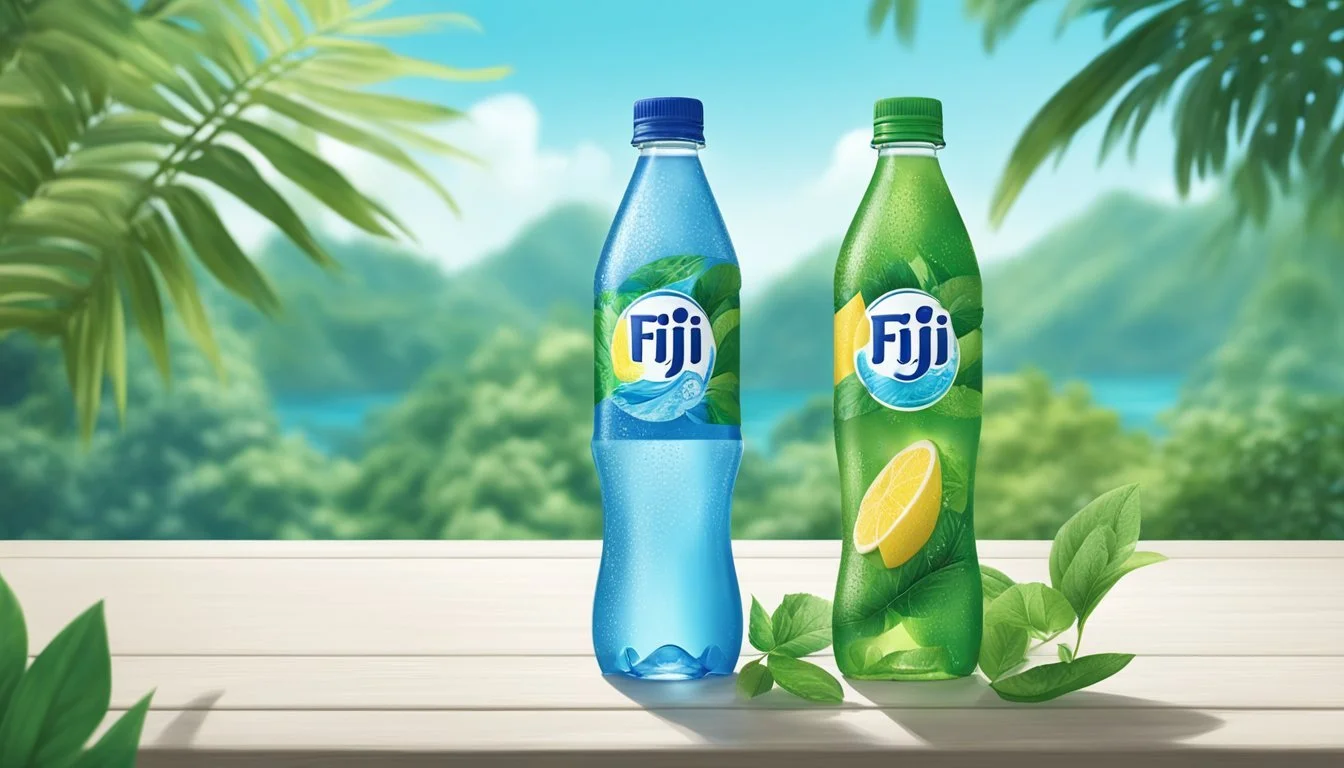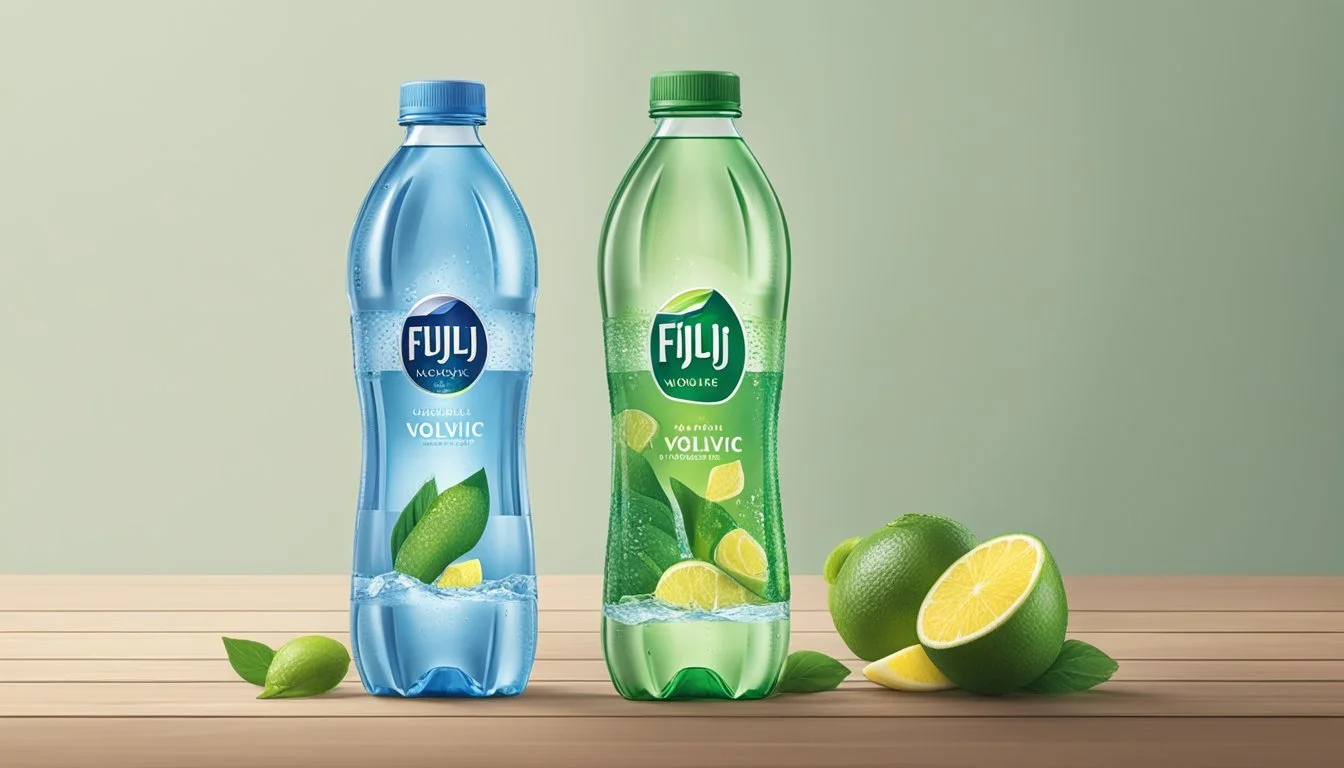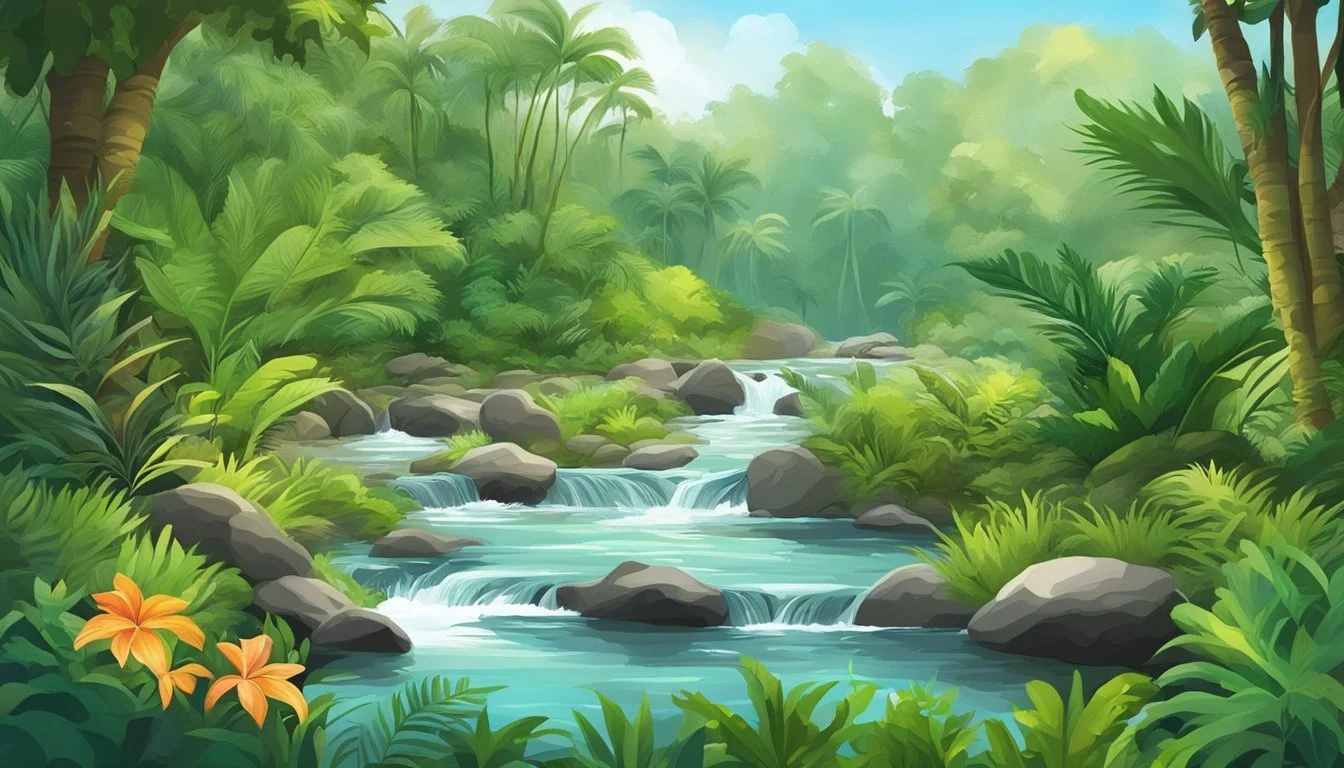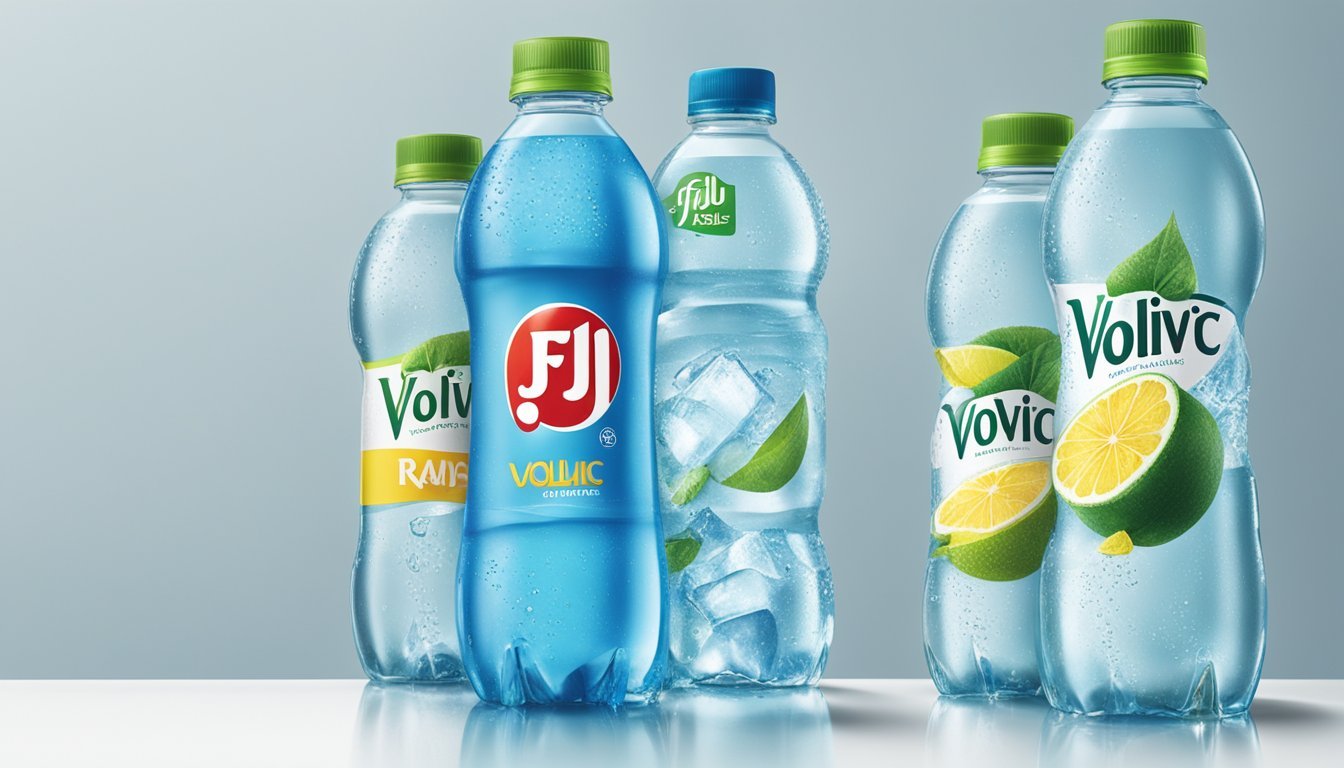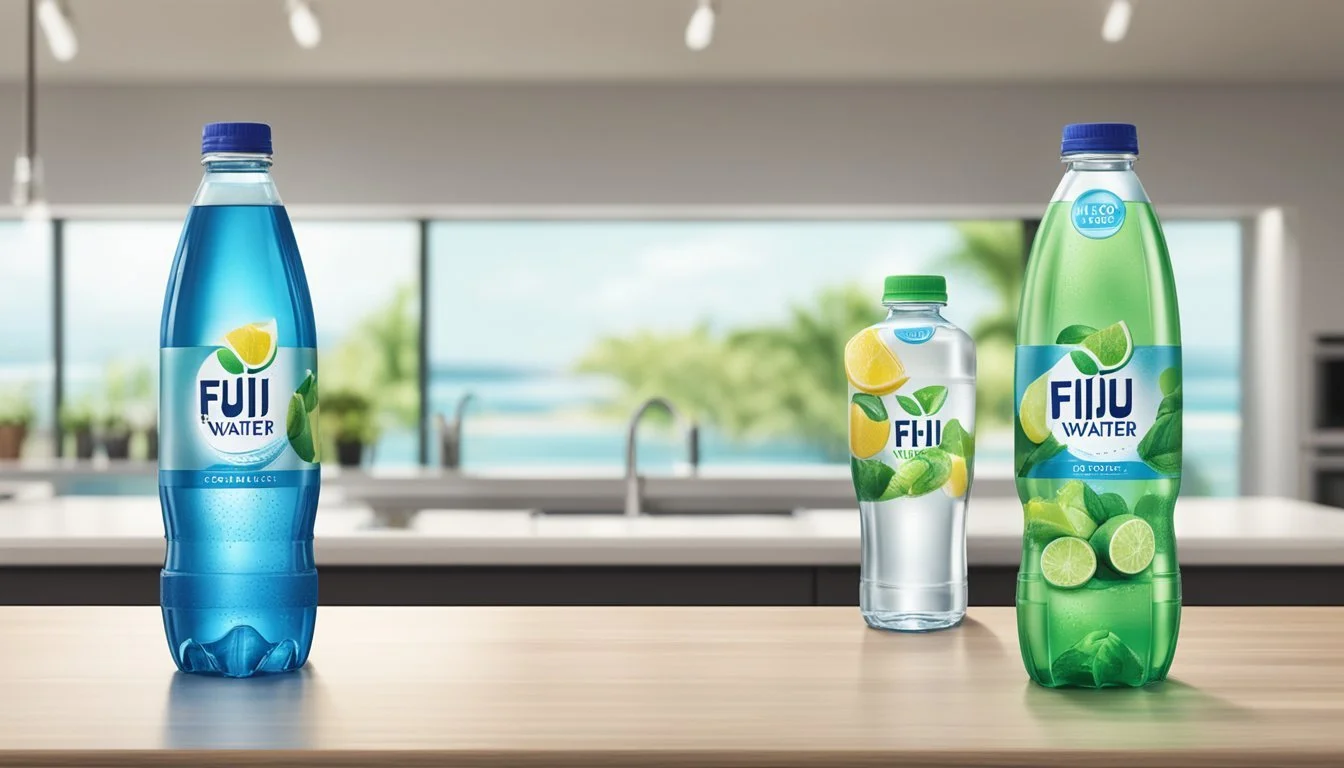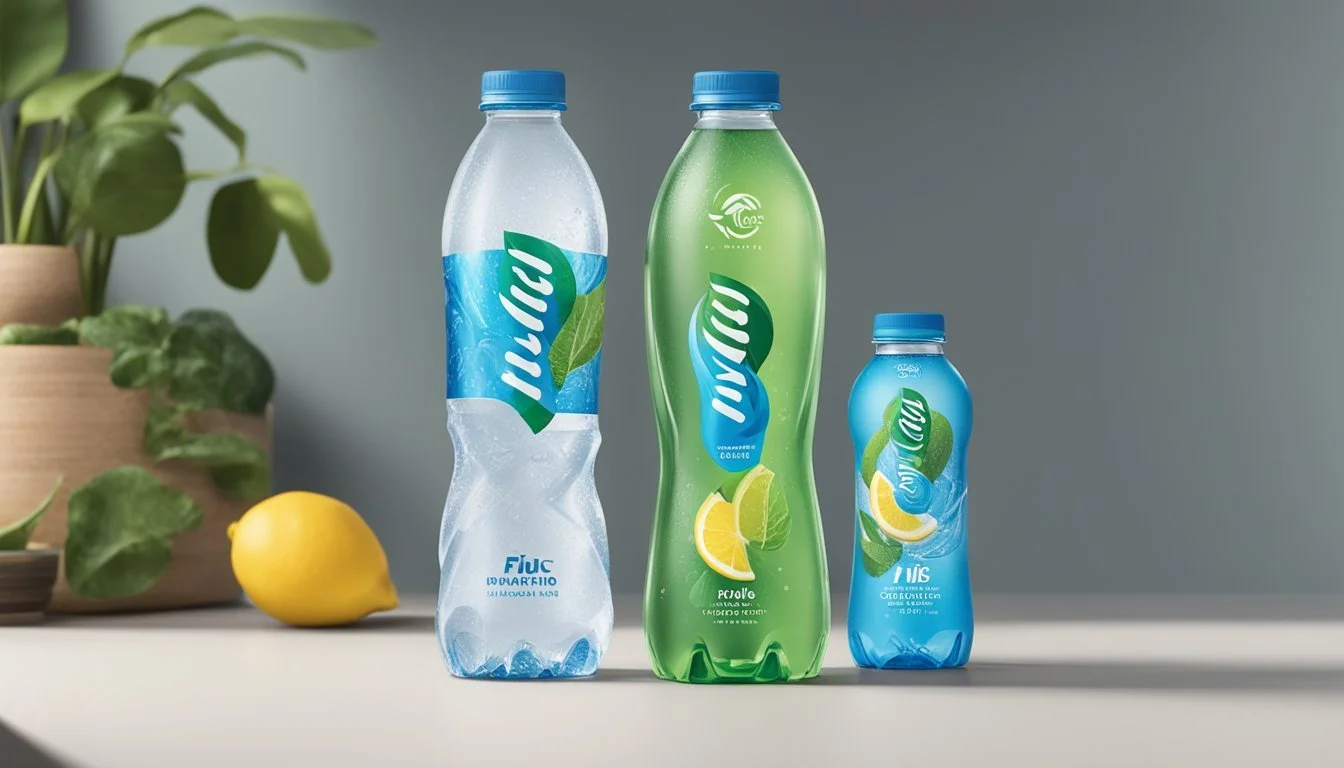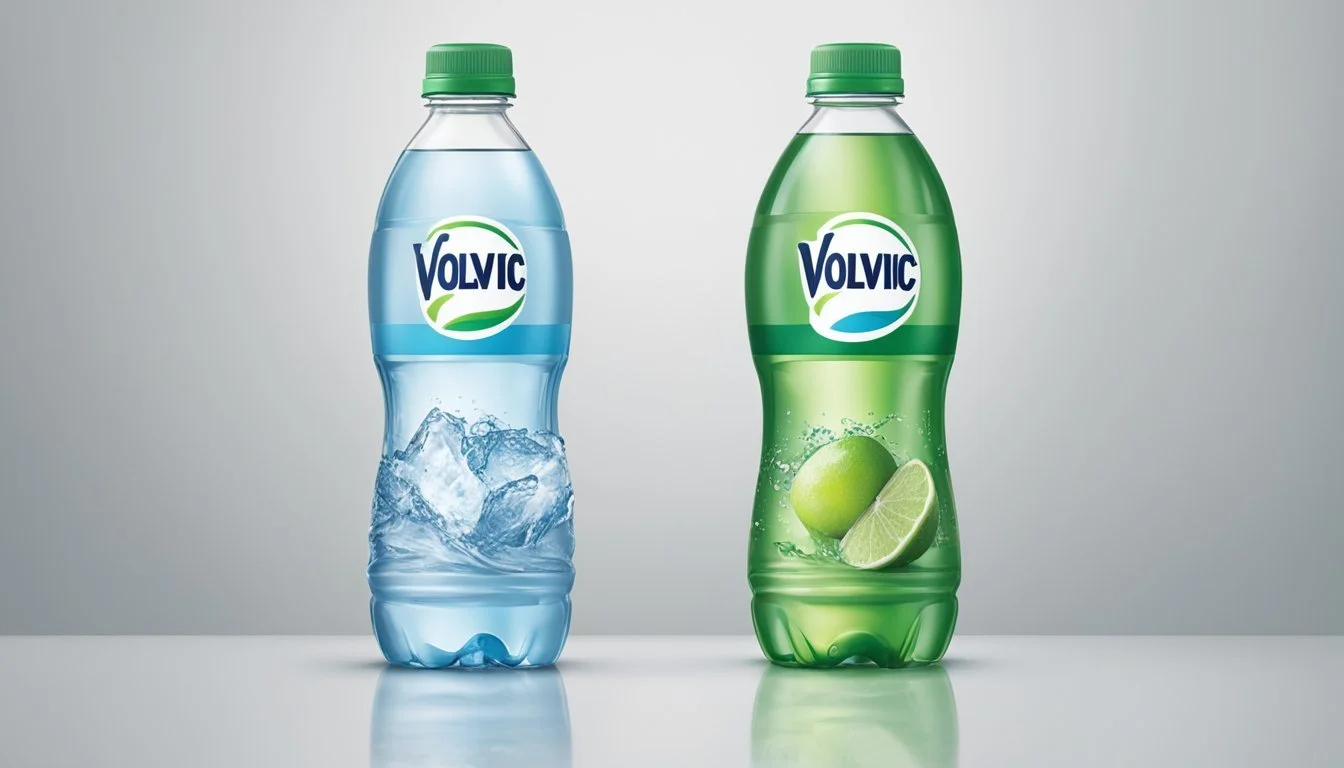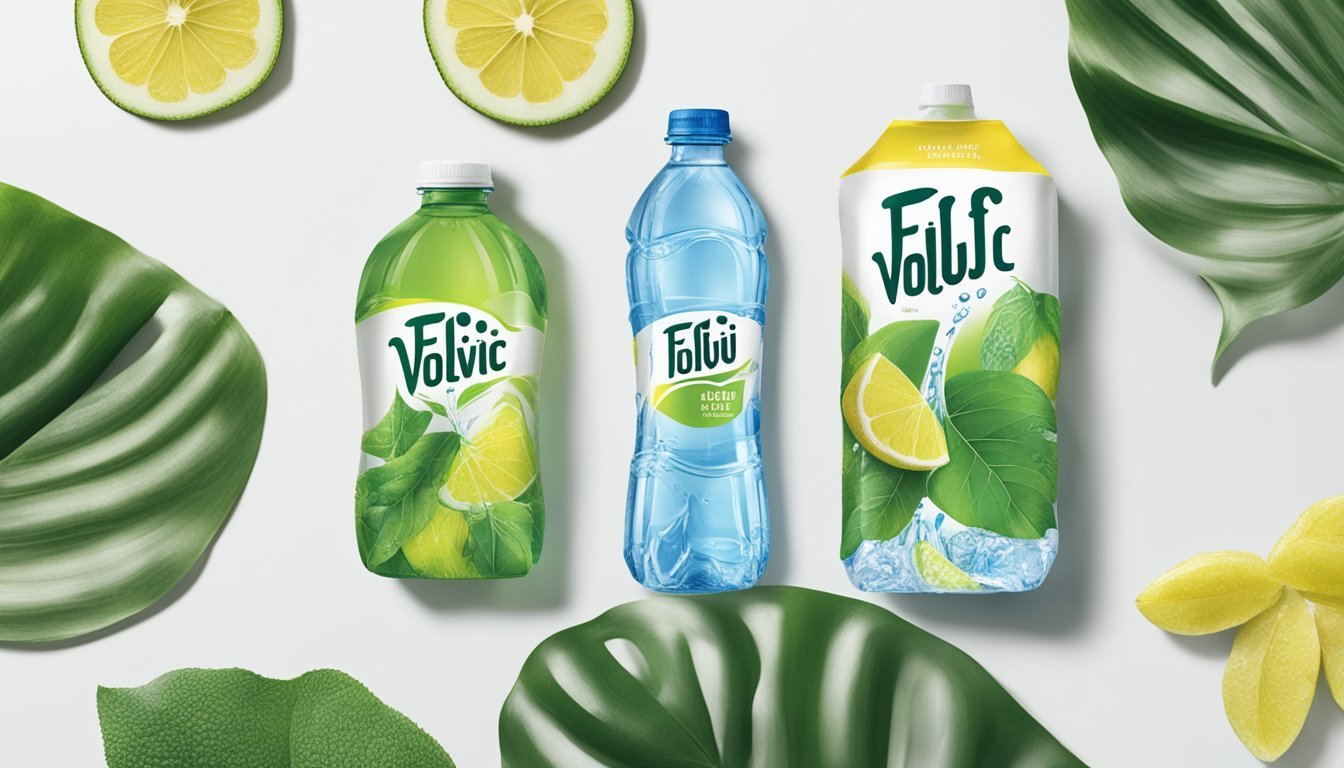Fiji vs. Volvic
Comparing the Taste, Purity, and Sustainability of Bottled Waters
In the realm of premium bottled water, two brands often come to the forefront of consumer choices: Fiji and Volvic. These brands have carved out reputations for offering high-quality water with distinct taste profiles and mineral compositions that appeal to a global market. Fiji, sourced from an aquifer on the island of Viti Levu in Fiji, is lauded for its soft, smooth taste and high silica content, which is believed by some to offer health benefits such as improved skin and hair quality.
On the other side stands Volvic, a brand that originates from the Auvergne region of France. Known for being filtered through volcanic rocks, Volvic water is rich in minerals, especially silica, magnesium, and calcium, contributing to its unique flavor and potential health benefits. Consumers often weigh their options between these brands based on factors like taste, price, mineral content, and the environmental impact of packaging.
Each has its passionate advocates and serves a segment of the market that values the particular characteristics it provides. When choosing between Fiji and Volvic, consumers may consider the geographical source of the water, the bottling process, and the brand's commitment to sustainability. These factors, among others, play a vital role in determining which bottled water one might deem "better" for their personal consumption and values.
Comparative Overview of Fiji and Volvic
Fiji Water and Volvic are prominent brands in the bottled water market, each with distinct characteristics derived from their sources. Fiji Water originates from an artesian aquifer in the remote Fiji Islands, while Volic Water is sourced from the Auvergne Volcanic Region in France.
Source and Taste:
Fiji Water: It is extracted from an underground aquifer and boasts a high silica content, giving it a smooth taste.
Volvic Water: Sourced from a volcanic region, it is naturally filtered through volcanic rock which enriches it with minerals.
Mineral Content:
Fiji Water contains minerals like silica, calcium, and magnesium, contributing to its signature soft mouthfeel.
Volvic Water is known for its unique volcanic filtration process and it is rich in bicarbonates, calcium, and magnesium, offering a crisp taste.
Environmental Considerations:
Both brands package their water in plastic bottles, raising concerns about environmental impact. However, Volvic has committed to becoming carbon neutral and has ongoing sustainability initiatives.
Fiji Water, in contrast, is associated with a higher carbon footprint due to its transportation from the South Pacific.
Brand Commitments:
Fiji Water has branded itself as a premium water choice, emphasizing the purity and untouched nature of its water source.
Volvic emphasizes its volcanic heritage and the natural filtration process that its water undergoes, marketing itself on the strength and vitality associated with volcanic minerals.
In terms of mineral content and source, both Fiji and Volvic offer their own unique benefits. Consumers often choose based on taste preference, brand perception, and environmental values.
Bottled Water Industry Landscape
The bottled water industry is characterized by a diverse array of brands, each competing for market share in a sector experiencing significant demand. Brands such as Fiji, Volvic, Evian, Dasani, Poland Spring, Aquafina, Essentia, Voss, SmartWater, and Pellegrino, among others, are often distinguished by the source of their water, packaging, and marketing narratives that speak to purity and lifestyle.
Popular brands, including Dasani (Coca-Cola) and Aquafina (PepsiCo), have a strong presence globally, leveraging extensive distribution networks. In contrast, brands like Fiji are often marketed as premium due to their exotic source and unique mineral composition. Volvic is similarly marketed, emphasizing its volcanic filtration process.
Sustainability concerns have led to shifts in the industry's approach to packaging, with an increased focus on using materials free from Bisphenol A (BPA) and implementing environmentally friendly practices. Despite this, the environmental impact remains a hot topic due to transportation emissions and plastic waste.
The demand for bottled water continues to rise, driven by factors such as perceived health benefits, convenience, and in some regions, the lack of access to clean tap water. The market sees a clear segmentation between everyday brands like Deer Park and Arrowhead, compared to luxury offerings such as Voss and Fiji.
Companies like Nestlé and Coca-Cola have developed extensive portfolios to cater to different consumer preferences, ranging from sparkling to still water and flavored varieties. Water brands are now an integral component of lifestyle choices, with companies often tailoring their products to specific consumer groups.
Consumers now have an array of options, from Icelandic Glacial to Core Hydration, each brand positioning itself to match varying consumer needs from sustainability to convenience, taste, and health considerations.
Taste and Composition
The primary factors determining a bottled water brand's appeal include its mineral content, the health implications of its composition, and the taste profile that distinguishes one brand from another. The source of the water plays a central role in influencing these attributes.
Mineral Content and Health Implications
Mineral content in bottled water varies significantly between brands. Fiji Water, sourced from an aquifer in Fiji, is well-known for its high silica content, which is believed to have various health benefits, including supporting bone and skin health. Volvic, sourced from a volcanic region in France, also contains minerals like calcium and magnesium, but is especially noted for its volcanic filtration which enriches the water with electrolytes and other minerals.
Fiji Water: High in silica and other minerals.
Volvic: Enriched with electrolytes, calcium, and magnesium.
Both brands offer natural mineral waters that can contribute to daily hydration and electrolyte balance, but preferences may differ based on individual health objectives and dietary needs.
Comparing Taste Profiles
The taste of bottled water can be subtly complex and is predominantly influenced by its mineral composition. Fiji Water is often described as smooth due to its silica content, further characterized by a soft mouthfeel. In contrast, Volvic tends to have a crisp taste profile that reflects its unique volcanic filtration process.
Fiji Water: Soft, smooth taste due to silica.
Volvic: Crisp taste influenced by its mineral composition and spring water source.
Taste preference is highly subjective and can vary from person to person, with some individuals preferring the distinct smoothness of Fiji Water while others may favor the crispness that Volvic offers.
Impact of Source on Quality
The source of bottled water profoundly impacts its overall quality and purity. Fiji Water is bottled at the source in Fiji, protecting it from contaminants and preserving its natural mineral content. Similarly, Volvic is sourced from springs in the Auvergne region of France, an area protected by stringent environmental regulations to maintain the natural purity and mineralization of the water.
Fiji Water: Sourced from a protected aquifer in Fiji.
Volvic: Sourced from protected natural springs in France.
Both brands emphasize the natural quality of their water, ensuring that hydration is not only effective but enhanced by the healthful minerals provided by their respective water sources.
Health and Safety Standards
When considering bottled water options like Fiji and Volvic, consumers should be aware of the health and safety standards that govern these products. These standards relate to how the water is monitored and regulated, potential impurities it may contain, and concerns arising from the materials used in packaging.
Regulatory Oversight
Fiji Water and Volvic Water are subject to different regulatory frameworks, depending on where they are bottled and sold. In the United States, the Environmental Protection Agency (EPA) sets standards for tap water, while the Food and Drug Administration (FDA) regulates bottled water. Both Fiji and Volvic must comply with safety standards that include limits on contaminants, requirements for regular testing, and accurate labeling of contents.
EPA Standards: Maximum contaminant levels for various substances, including microplastics and heavy metals.
FDA Standards: Compliance with standards similar to those of the EPA, with specific requirements for bottled water.
Potential Contaminants
Researchers often focus on contaminants like microplastics, heavy metals, and BPA (Bisphenol A) in bottled water.
Microplastics: Tiny plastic fragments that may enter water sources. A study highlighted in search results has found high levels of microplastics in 93% of bottled water tested.
Heavy Metals: Elements like lead and arsenic, which can be toxic at certain levels. The study by Consumer Reports raises concerns about arsenic levels in some bottled waters.
BPA: A chemical found in some plastic containers that can disrupt endocrine function. Bottled water producers are increasingly using BPA-free plastics to mitigate this risk.
Packaging Concerns
Packaging material is not only a sustainability issue but also a health consideration. Fiji Water is known for its signature square-shaped, single-use plastic bottle, while some Volvic products are available in PET bottles, which are recyclable.
Plastic Bottles: Typically made with PET, which is BPA-free, but may still contain other harmful substances if not properly produced.
Glass Bottles: A safer alternative for avoiding contaminants leaching from packaging materials; however, not as common for many brands due to higher costs and transport concerns.
Through this analysis of bottled water health and safety standards, it becomes evident that both Fiji and Volvic must adhere to strict regulations and face challenges related to potential contaminants and packaging materials. Consumers should weigh these factors when choosing bottled water.
Environmental Impact and Sustainability Practices
The following section delves into the comparison of Fiji and Volvic bottled water brands with a focus on their environmental impact and sustainability practices. The critical aspects covered include source sustainability, packaging and recycling initiatives, and overall carbon footprint management.
Source Sustainability
Fiji Water sources its natural artesian water from a sustainable underground aquifer in the Fiji Islands. The aquifer is naturally replenished by rainfall and does not deplete the local water table. In contrast, Volvic water is sourced from Auvergne, France, where it filters through volcanic rock, replenishing the catchment area and maintaining the natural water cycle.
Sustainability: Both Fiji and Volvic claim to manage their water sources sustainably, minimizing any negative impact on the environment.
Groundwater Management: The companies utilize natural aquifers, which are continuously recharged, but are responsible for ensuring their operations don't diminish the groundwater levels significantly.
Packaging and Recycling
Both brands emphasize sustainable packaging, though Fiji made a transition to 100% recycled plastic (rPET) for its 500 mL and 330 mL bottles as of 2022. Volvic has been using recycled material, and both brands aim for further reductions in packaging footprints.
Materials: Fiji's rPET bottles and Volvic's commitment to increasing recycled content in packaging help reduce environmental impact.
BPA Concerns: The packaging is BPA-free, ensuring customer safety and environmental health.
Recycling Initiatives: Both brands encourage recycling, but they face challenges ensuring that used bottles are appropriately recycled by consumers.
Carbon Footprint
Both Fiji and Volvic have taken steps to address their carbon footprint. Fiji Water initiated a Carbon Negative campaign, intending to offset more greenhouse gas emissions than its operations release. Similarly, Volvic has made carbon reduction commitments, although specific details on their initiatives are needed for a more in-depth comparison.
Carbon Offsets: Fiji's campaign to go carbon negative highlights its efforts to be more environmentally responsible.
Emissions: Both brands are responsible for emissions from production and transport, but efforts are made to mitigate these through various environmental initiatives.
Through source sustainability, innovative packaging, and carbon footprint reduction strategies, Fiji and Volvic demonstrate their commitment to environmental stewardship and sustainable practices in the bottled water industry.
Pricing and Accessibility
When evaluating bottled waters such as Fiji and Volvic, consumers consider both price and availability. These two factors can significantly influence purchasing decisions.
Cost Comparison
Fiji water is often viewed as a premium brand, recognized for its signature taste and mineral content. Consequently, it typically commands a higher price point in the market. On the other hand, Volvic, sourced from the Auvergne region in France, is also considered a premium product but is usually priced slightly lower than Fiji. To illustrate:
Fiji Water (500ml): $2.00 - $2.50 USD
Volvic Water (500ml): $1.50 - $2.00 USD
The prices vary depending on the retailer and location, but generally, consumers can expect to pay a bit more for Fiji water.
Global Availability
Both Fiji and Volvic water are marketed and distributed internationally. Fiji water is bottled in Fiji and then shipped around the globe, making it widely available in North America, Europe, and other regions. Volvic has a robust distribution network, predominantly across Europe, but it can also be found in many international markets. While Fiji’s remote location may add to its mystique, it also contributes to higher transportation costs, which can affect its price and accessibility. Conversely, Volvic's more central location within Europe may aid in lower shipping costs and wider accessibility.
Fiji Water: Accessible in major markets; availability may vary by region.
Volvic Water: Strong presence in Europe; broadly available internationally.
Brand Strategies and Consumer Perception
In the world of premium bottled water, Fiji and Volvic have crafted distinct brand strategies and consumer perceptions through targeted marketing, endorsement by celebrities, and strategic placement within the hospitality industry. These elements play pivotal roles in shaping the public's view and determining brand reputation.
Marketing and Advertising Approaches
Fiji Water focuses on portraying an exotic and pure image. Their advertising emphasizes the natural beauty of Fiji and the purity of their water source. Fiji Water has often initiated promotional campaigns in high-profile venues and events, which typically target the higher-end market. Their campaigns include celebrity endorsements and partnerships with luxury hotels and resorts, enhancing the brand's upscale image. The brand’s unique selling proposition has always revolved around its origin from the unspoiled Yaqara Valley of Fiji.
Volvic, sourced from the volcanoes of Auvergne in France, also emphasizes natural purity but with a different approach. It often highlights the filtration process through volcanic rocks in its branding, which implies added mineral content and a unique taste profile. Its advertising strategies tend to focus on health and the natural benefits of its volcanic water.
Both brands have carved out niches through these divergent advertising strategies, appealing to consumers' desires for pure, premium water, though their emphasis on luxury and health differs.
Brand Positioning and Reputation
The reputation of Fiji Water as a premium brand is not just based on their marketing strategies but also on their strategic presence in the hospitality industry, aligning themselves with high-end luxury and exclusivity. This positioning has given them a favorable perception among a wealthy consumer base, setting them apart from brands like Dasani and Aquafina, which are positioned as everyday bottled water choices.
On the flip side, Volvic has established a strong brand identity that focuses on sustainability alongside health. They have aligned themselves with environmentally conscious consumers, which differentiates them from many competitors including Evian, another premium water brand. This positioning has bolstered their reputation as a brand that cares for consumer health as well as the environment.
The contrast between Fiji Water's luxury marketing and Volvic's health and eco-consciousness has shaped how each brand is perceived in the market. Each taps into different consumer values, whether it's the status and purity associated with Fiji or the health and ecological responsibility evoked by Volvic.
Alternatives to Bottled Water
When considering alternatives to bottled water such as Fiji or Volvic, consumers have several options that not only cater to different tastes and preferences but also vary in their content and potential health benefits. These alternatives include tap water enhanced through filtration systems, waters with added nutrients or flavors, and carbonated options.
Tap Water and Filtration Systems
Tap Water is the most accessible and cost-effective alternative to bottled water. It is subject to strict quality regulations by government agencies to ensure its safety for consumption. For those concerned about impurities or the taste of tap water, Filtration Systems like carbon filters or Reverse Osmosis units can significantly improve water quality. These systems can remove contaminants and may also improve taste and odor.
Table: Common Filtration Techniques
Technique Removes Notes Carbon Filters Chlorine, sediment, volatile organic compounds Easy to install, improves taste and odor Reverse Osmosis Fluoride, lead, arsenic More thorough, can be more costly to install
Enhanced Waters and Their Claims
Enhanced Waters are those like Alkaline Water, which boasts a higher pH level, or waters that contain added Electrolytes. Manufacturers claim these properties can aid in hydration and provide health benefits, although such claims are not always backed by conclusive scientific evidence.
Vitamin Water is a type of enhanced water that contains added vitamins and minerals, sometimes alongside flavors and sweeteners. It is often marketed as a healthier alternative to soft drinks, though one should be mindful of its sugar content.
Table: Types of Enhanced Waters
Type Claims Considerations Alkaline Water Better hydration, acid balance Scientific evidence is mixed Electrolyte Water Replenishes minerals, aids in hydration Can be helpful after intense physical activity Vitamin Water Provides vitamins, alternative to sodas May contain added sugars and calories
Sparkling and Flavored Waters
Sparkling Water like San Pellegrino or Pellegrino is a popular alternative for those who prefer a fizzy texture. This carbonated water may also come with added minerals. Flavored waters, both still and sparkling, offer a variety of tastes without adding sugar or calories, depending on the brand.
It's important for consumers to read labels as some sparkling and flavored waters might contain added sugars or artificial sweeteners. Opting for brands that have natural flavors and no added sweeteners can provide a more health-conscious choice.
List: Considerations for Sparkling and Flavored Waters
Check for added sugars or artificial sweeteners
Natural flavors are often a better choice
Sparkling water can provide a satisfying alternative to soda
Consumer Trends and Future Outlook
The bottled water industry is witnessing significant changes in consumer behavior and market dynamics. These factors are reshaping the future of brands like Fiji and Volvic, with particular attention to aspects such as hydration benefits, electrolyte enhancement, and the rise of alkaline water.
Shifting Preferences and Innovations
Consumers are increasingly seeking water that offers more than simple hydration. Electrolytes and alkaline water have become buzzwords, with preferences shifting towards beverages that promise enhanced hydration and health benefits. Bottled water brands, including top contenders like Fiji and Volvic, have adapted, introducing innovations that cater to these health-conscious trends.
Fiji has capitalized on its natural artesian water, which naturally contains minerals and electrolytes.
Volvic is recognized for its volcanic filtration process, enriching water with a unique mineral composition.
Brands are also investing in eco-friendly packaging and sustainable practices to appeal to environmentally aware consumers.
Changing Market Dynamics
Market dynamics in the bottled water industry are steered by consumer demand for high-quality water and the reputation of water sources.
Best to worst rankings: While some brands are favored for their taste and purity, others might fall behind due to sourcing concerns.
Top water brands: Fiji has often earned high favorability ratings for quality, while Volvic's reputation for its volcanic mineral content sets it apart.
Trends in Demand Fiji Volvic Electrolyte-enhanced Yes Mild Alkaline water No Yes Environmental focus Yes Yes
The future outlook indicates that as long as these brands continue to innovate and adapt to changing consumer needs, they are likely to remain at the forefront of the bottled water market. The emphasis on health, sustainability, and quality will guide their trajectories in the coming years.
Conclusion
Fiji Water and Volvic are both reputable brands in the bottled water market. Their differences primarily lie in their source and mineral content.
Fiji Water originates from an aquifer in Fiji and boasts a unique mineral profile, including high levels of silica, which some consumers believe can contribute to health benefits. However, Fiji Water is often critiqued for its use of plastic bottles, which raises environmental concerns.
Volvic, sourced from the volcanic region of Auvergne in France, is naturally filtered through volcanic rock, which enriches the water with minerals and electrolytes. Volvic's composition includes calcium, magnesium, and potassium, which are essential for bodily functions.
When deciding which water is better:
Fiji: Silica content may be a pull factor for some; however, environmental considerations due to plastic packaging may deter others.
Volvic: Mineral-rich, thanks to its volcanic filtration process, making it health beneficial; environmentally conscious consumers might appreciate the brand's efforts in eco-friendly packaging.
Consumers should select based on their personal health priorities, taste preference, and environmental values. Both are high-quality options with their respective merits and demerits, and the choice ultimately depends on individual consumer values and needs.

